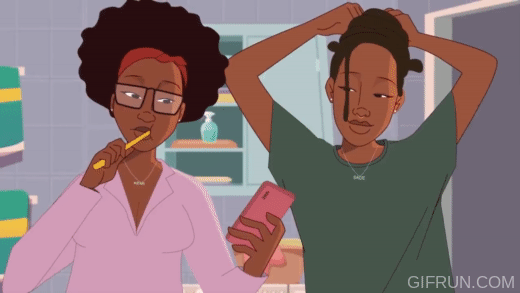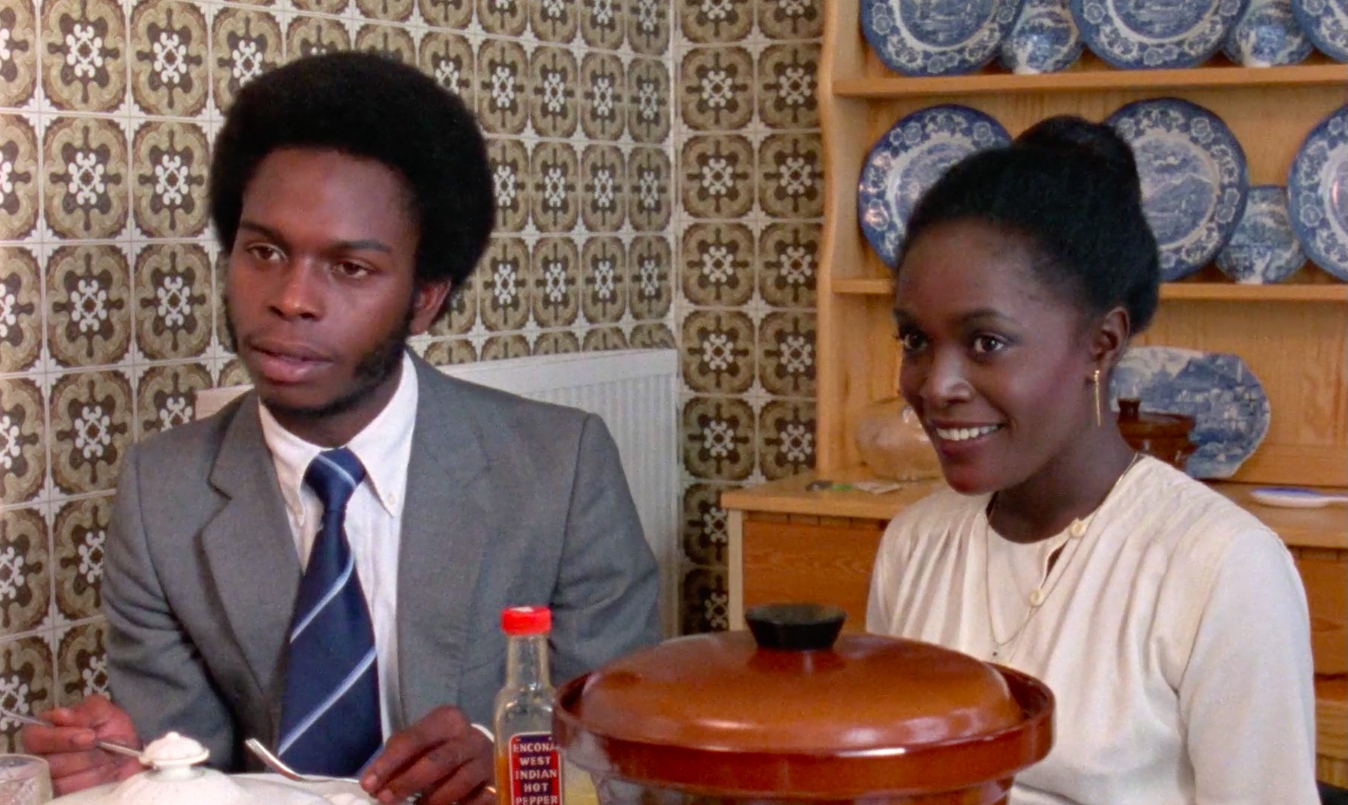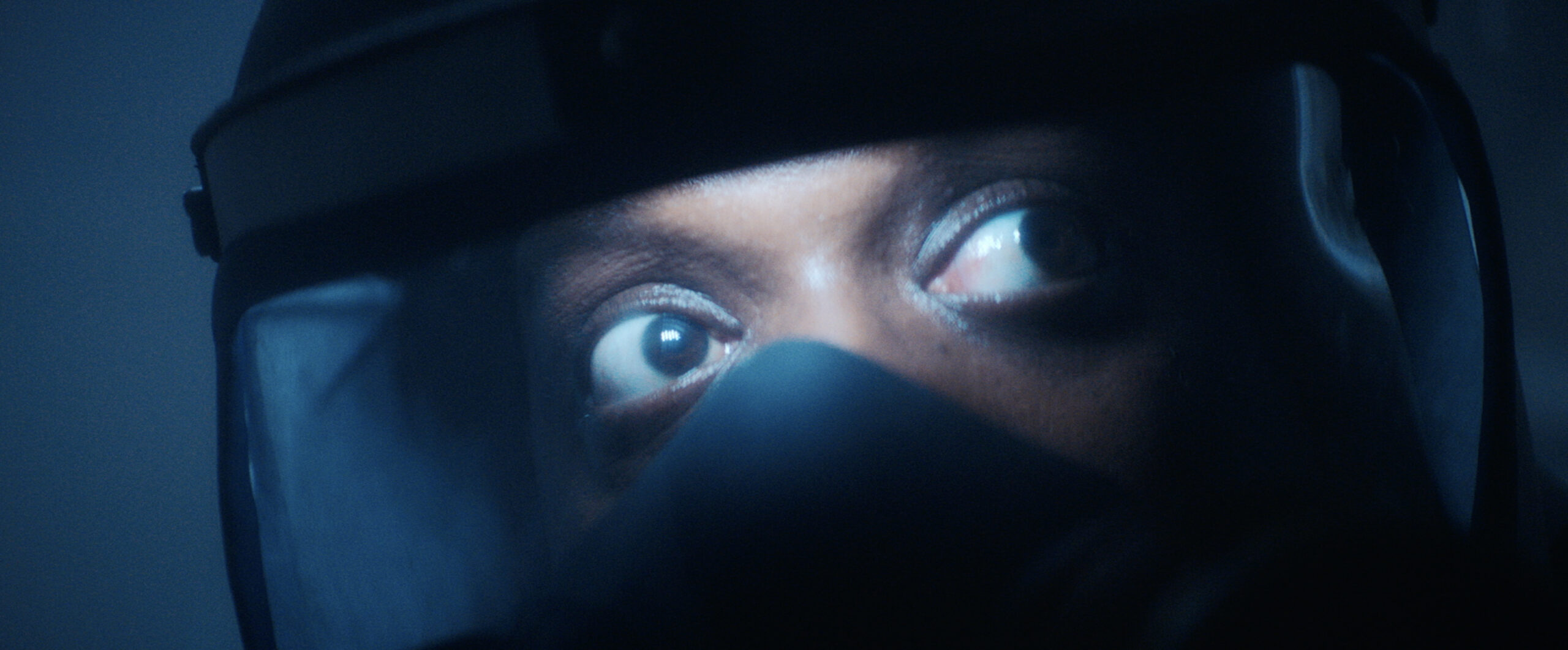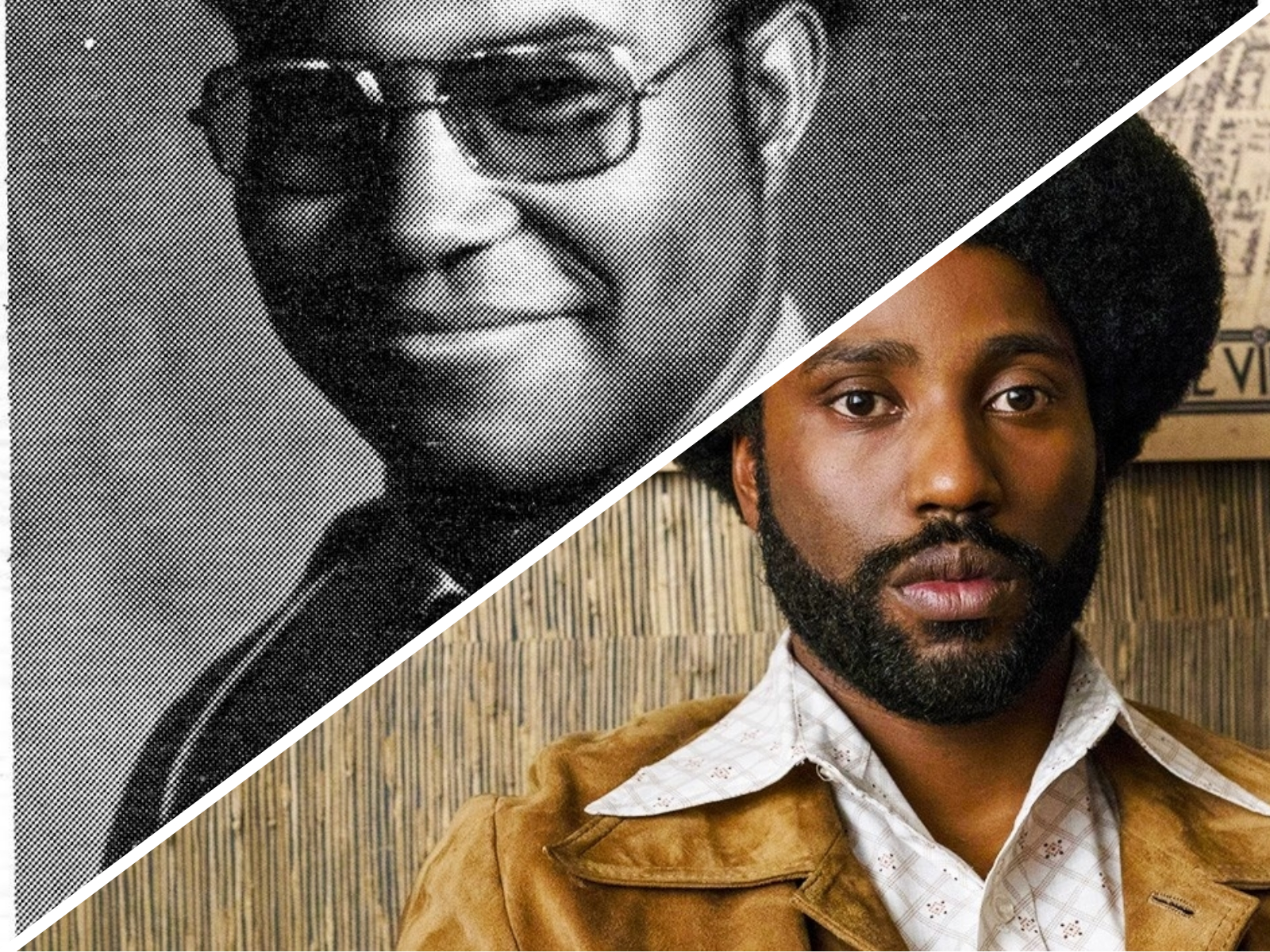
Courtesy of Universal Pictures
It’s an eye-catching synopsis: Black man infiltrates the Ku Klux Klan. BlacKkKlansman is out in cinemas now and although it sounds unlikely, the plot mirrors the life of Ron Stallworth, Colorado Springs Police Force’s first African-American detective.
Reminiscing on his time in the 1970s where he helped expose the white supremacist organisation, he says the film did an “excellent job” of bringing that chapter of his life to the big screen. Some things have been dramatised and embellished to make it into a visceral drama with fleeting moments of comical relief, which has earned the film critique for being “fabricated”. “There’s a story within my story for the sake of the plot and it does a great job of telling both of these,” Stallworth tells gal-dem.
There are definitely significant parallels – in the film Ron’s love interest from the Black Panthers constantly questions where his loyalties lie: His police force or his people. In our conversation he confidently proclaims the racism that he faced within the force would lead to a police officer losing their jobs. Despite the hundreds of viral videos, and unpunished deaths that prove otherwise. There was no indictment ruling against Officer Wilson who killed an unarmed, 18-year-old Mike Brown, for example. Regardless, it’s clear that having carved out such a standout career in the police he is protective of the organisation which may have also led to his less-than-savoury response to Boots Riley’s laser-sharp critique.
Here he gets candid about how he perceives the threat of racism, what Donald Trump means for race relations, and that Boots Riley comment.
Since Donald Trump became president, we’ve taken a step or two backwards when it comes to race relations. He’s a racist, he’s a white supremacist, and he gives a voice and exposure to white supremacist groups – Ron Stallworth
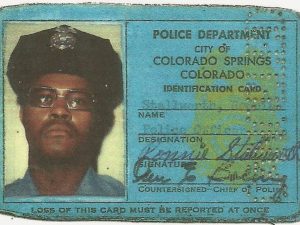
Photo courtesy of Focus Features
gal-dem: How did you feel when you first found out your memoir was going to be made into a film directed by Spike Lee?
Ron Stallworth: I wrote the book because I simply wanted to tell my story and that was it, so the very fact that somebody wanted to turn it into a movie was a very pleasant surprise.
What type of racism did you experience from within the police force back then?
It was very subtle. I refer to it in my book and there is a part in the film where John David Washington [who plays Ron Stallworth in BlacKkKlansman] is asked to comment on a magazine cover of Cybill Shepherd by a white officer. John David responds by telling him that she’s a nice actress to which the white officer says, ‘come on, you know you want some of this’.
That part of the film is a play on something that really happened to me where a white ID technician and I were going back and forth about our favourite actresses and those actresses we found most attractive. I mentioned some white actresses as did he. Eventually I mentioned a black entertainer by the name of Lola Falana who was popular in Las Vegas at that time. He said to me, ‘I don’t know how you people define beauty in a black woman, I can’t relate to you saying that she’s beautiful’.
That’s one incidence of the racism I experienced in the police force back then. One minute I’d hear a Polish joke, like ‘how many Poles does it take to screw in a light bulb’, and that sort of nonsense. The next minute the same joke would have changed to, ‘how many toads’ instead of ‘how many Poles’, and ‘toads’ was a word they used to refer to black people.
Did you find it difficult to to carry on, succeed and thrive in such an environment?
You had to or you didn’t have a job. No, it was not difficult, you just learned to ignore it and push forward. Everything always comes around full circle and it definitely did for me.
Do you think the situation with racism within the police is still similar today?
No, police officers can’t get away with the type of racism I experienced back then because laws and policies have changed. If a police officer tried to act that way today they would lose their jobs.
The police department doesn’t necessarily attract people with racist views, it just attracts people, period. The type of people that end up on the police force are a representation of the society that they serve, a society where people have opinions and ideologies. Racism thrives within society and so the police force will reflect that.
So you feel that we have moved forward as a society?
There’s no doubt that we have moved forward as a society but since Donald Trump became president, we’ve taken a step or two backwards when it comes to race relations. He’s a racist, he’s a white supremacist, and he gives a voice and exposure to white supremacist groups, which is to our [USA] shame as a nation and to the world. We have world leaders who are embracing him because they are afraid of getting under the skin of the United States when they should be condemning him.
I pray for my deranged, disillusioned brother and that’s all I have to say – Ron Stallworth on Boots Riley
What would your response be to Boot Riley’s tweets claiming that BlacKkKlansman ‘softens a history of racism’?
I pray for my deranged, disillusioned brother and that’s all I have to say.
Do you feel there’s a correlation between the advancement of the black community and the rise of white supremacist outrage?
There may be some truth to that. White supremacists in America love to pose as victims when they are in fact in the dominant position. Whites have always dominated America and when blacks and other minority communities start to thrive, they feel more victimised because it’s not them thriving.
When white people don’t thrive in a given area, it’s never the fault of the minority group that happens to be thriving in said area, it’s their fault. But they will always claim victimhood. This is something the media runs with and that people such as Trump give credence to.
What would you like viewers to take away from the film?
I’d like them to not get hung up on the Klan in particular. White supremacy in general is very much alive in the form of the Klan, the alt-right, nazis, skinheads, their ideology is the same. They are interchangeable parts, so I don’t want viewers to get hung up on labels. White supremacy has always been around and it will always be around, there are times throughout history where it has gone slightly underground but it always emerges again with force. This Trump era is one of those emerging periods.
BlacKkKlansman is out in cinemas now.

